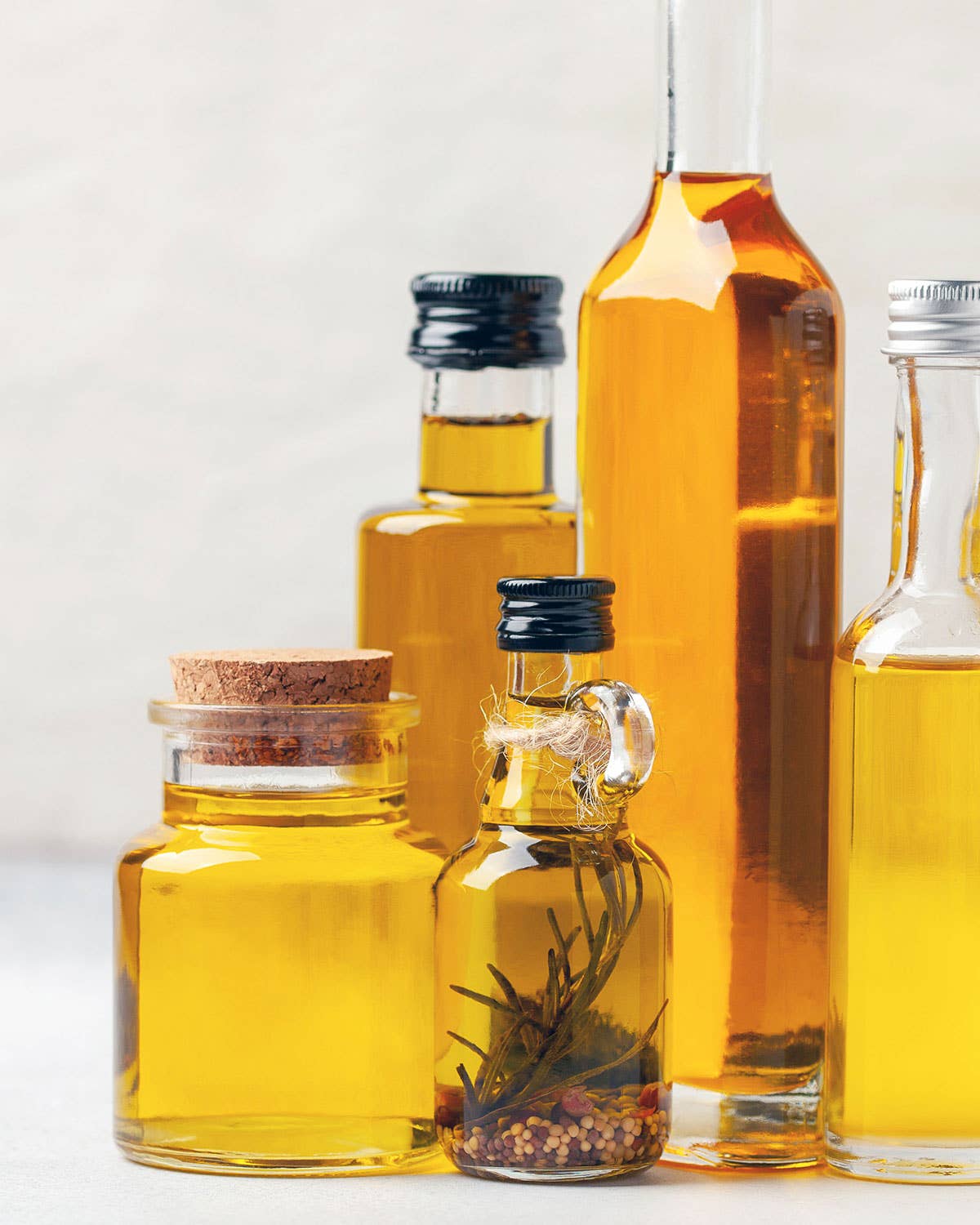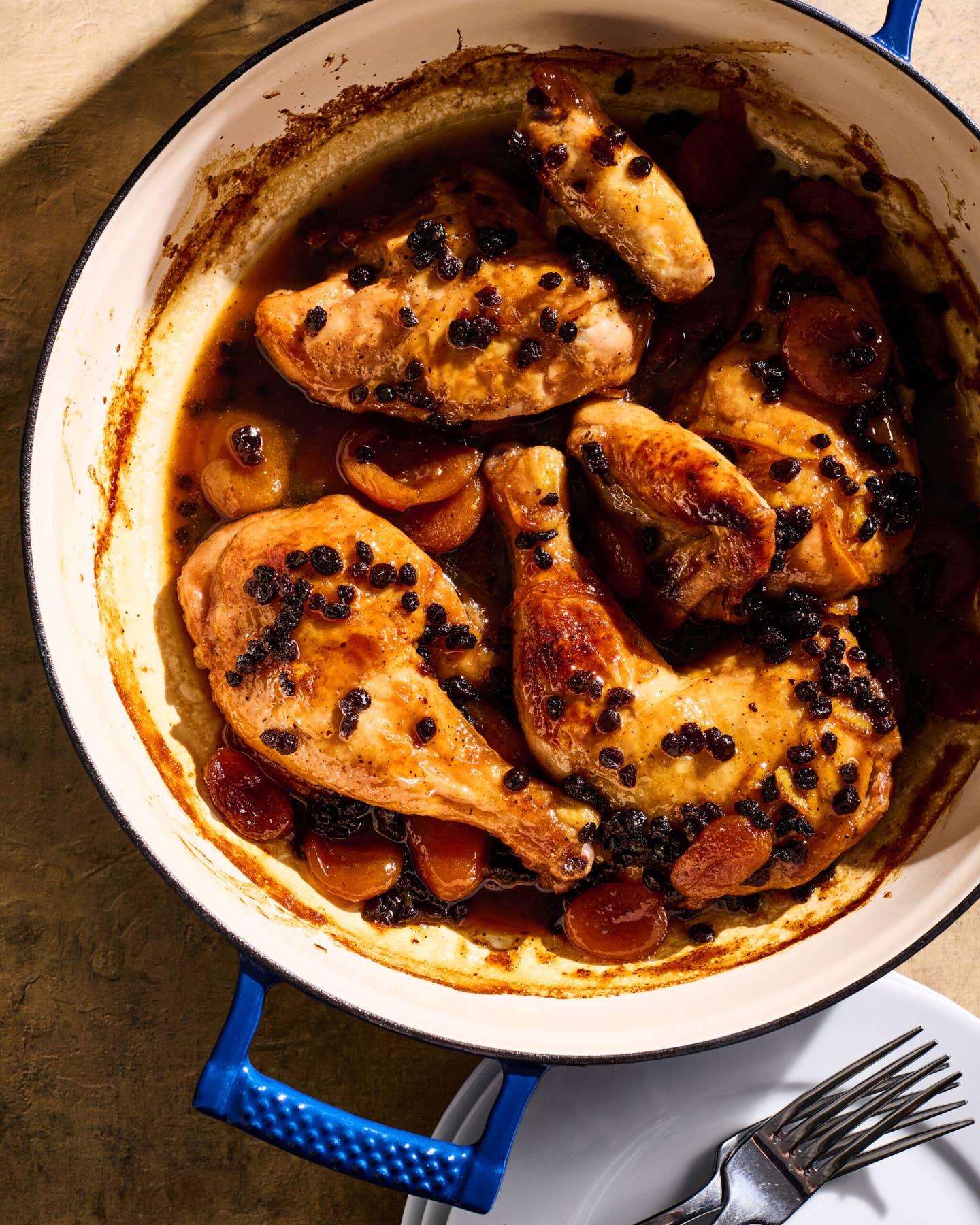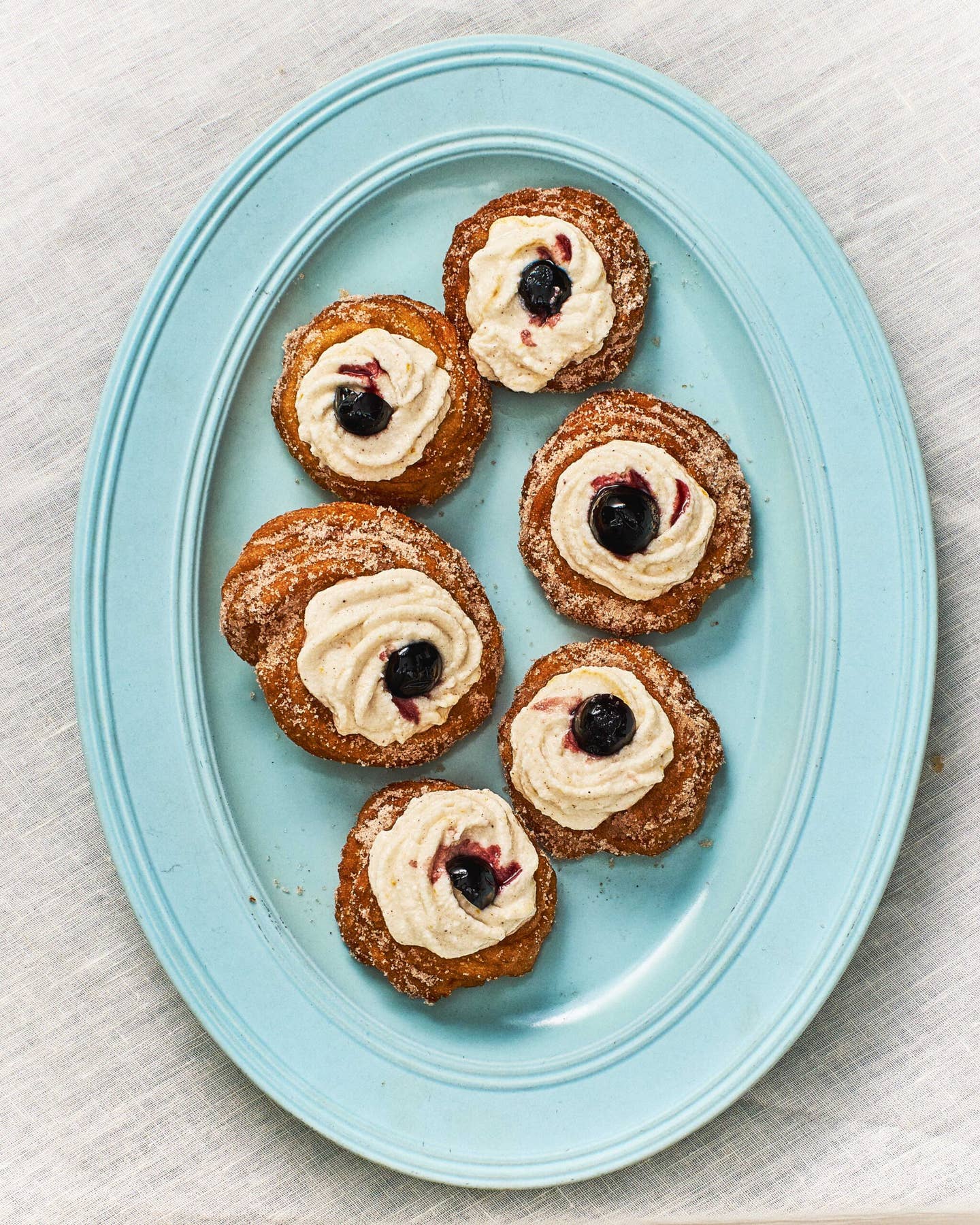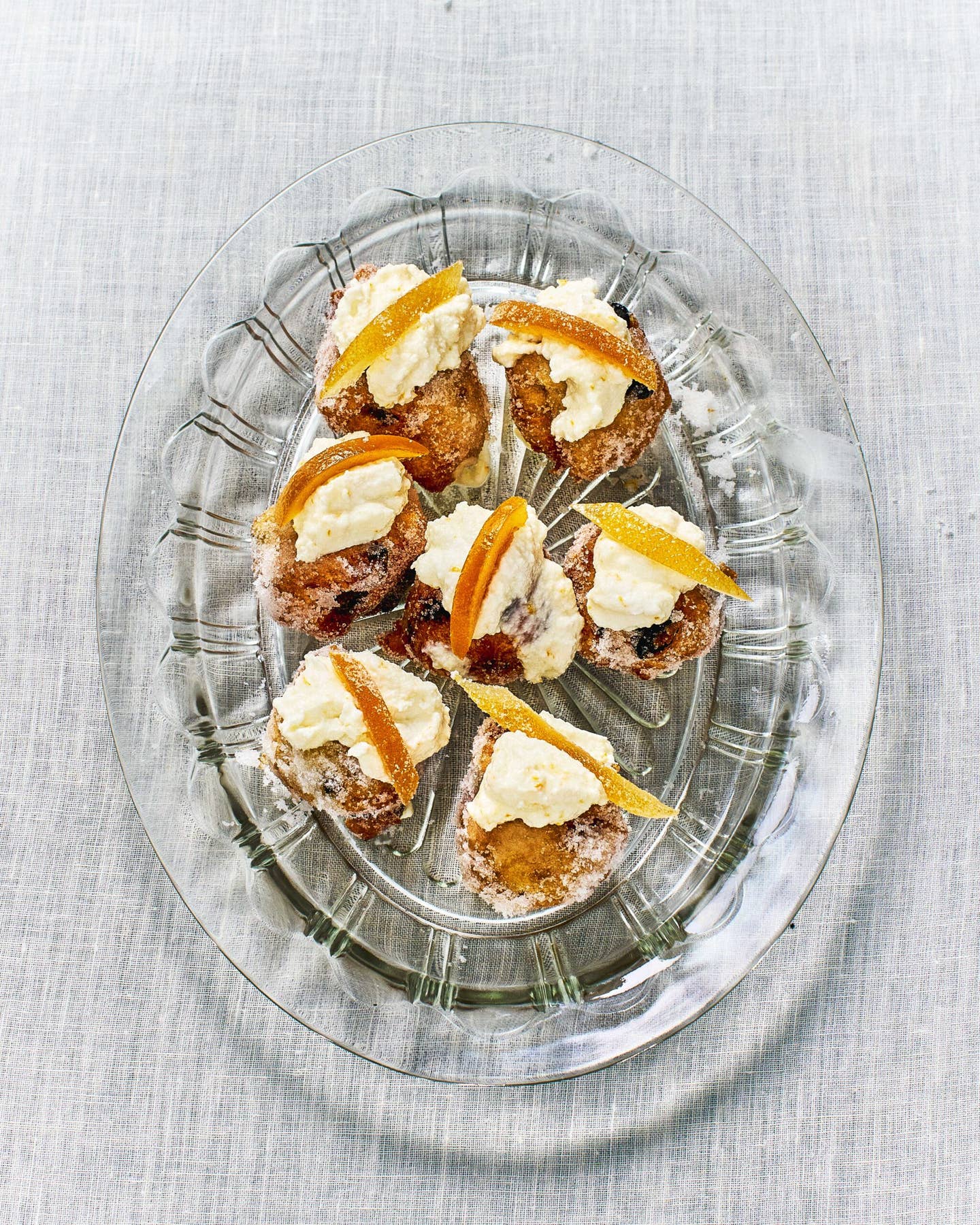These Tips Keep Your Olive Oil Fresher, Longer
Keep that liquid gold fresh as long as possible.

Olive oil is sensitive—and needy. Olives are a fruit after all, and just like the juice from any fruit, olive oil can go sour if not properly stored. Extra-virgin olive oil is made from pure cold-pressed olives, whereas standard olive oil is a blend of cold-pressed and processed oils. Extra-virgin olive oil takes a lot of time and love, which often leads to higher prices and a superior product that smells grassy, peppery, or fruity. Cooking with rancid oil will not only affect the taste of your food, but it will decrease the health benefits as well. Use these tips to keep that liquid gold good until the very last drop.
Heat is not your friend.
Yes, that fancy bottle of EVOO looks cute next to your stove, but that is probably the worst place to keep it. A cool, dry location, like a cupboard or pantry, is the best move. If you cook a lot and have an everyday olive oil you like, it’s okay to keep it by the stove in an appropriate container (more on that later!). The expensive stuff you use to finish a dish is better stored in a dark, cool place away from your stove. If you want to get technical, between 60 and 70 degrees Fahrenheit is optimal.
Let there be (no) light.
Light exposure will speed up rancidity and reduce the amount of antioxidants in your oil. This is why most olive oils are sold in dark green bottles. If your oil comes in a clear bottle, you’re better off transferring it to a dark, opaque container so minimal light seeps in. Bonus points for a ceramic vessel which also will block out heat.
Keep it sealed.
Aside from heat and light, oxygen is the third worst oil offender. That means that the second you open the bottle, the decaying process has already begun. Keep your bottles tucked away in a cool, dark place and funnel just what you need for daily use into a smaller container with a lid or thin pouring spout. A small ceramic cruet or dispenser is ideal for easy drizzling, not to mention they look very chic on the counter. Just remember to rinse and scrub with a bottle brush before refilling to dispose of any leftover oil that could spoil your new batch.
Product mentions: Emile Henry Olive Oil Bottle Maccarello Olive Oil Bottle
Mind the expiration date.
Most premium olive oils will have a harvest date on the bottle. The oil will typically last two years from that harvest date, if unopened. Once the bottle is open, the sooner you use it the better. Between one and two months is ideal for maximum freshness.
How can you tell if it’s gone sour?
Just give it a whiff. Good olive oil will smell fresh and fruity. Rancid oil will smell metallic or like a box of crayons.
Final thoughts
Unlike wine or vinegar, olive oil does not get better with age, so it’s not an ingredient you want to hoard. To keep your oil fresh and tasty, use it in a timely fashion and remember the dirty three: heat, light and oxygen. Avoid buying olive oil in bulk, even if that big bottle is on sale! You’re better off purchasing small quantities and replacing frequently as needed.

Keep Reading
Continue to Next Story










